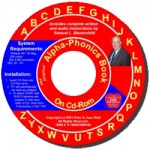
With so many young Vermonters taking an active role in speaking out on issues related to climate change, perhaps lawmakers should take seriously a proposal that will be coming their way this session that would require school districts to offer lessons on climate change.
In neighboring New Hampshire, a bill up for consideration before that legislature would do just that.
The House bill would require at least 10 hours of climate education or a full semester of environmental education in high school, and anywhere from two hours to eight hours for younger students. It would take effect July 1, 2021.
The bill’s sponsor, Rep. Chris Balch, a Democrat from Hillsborough, said some teachers incorporate climate change into their science curriculum, but it’s the state’s responsibility to prioritize it.
“We need to have a common base of knowledge of what climate change is, how it works, how it happens, what we can do about it,” he said.
 Climate change education varies across states, and often from one classroom to the next. Nationally, many teachers report that they shy away from the topic, not only because of issues with materials, but also the political sensitivities, and uncertainty over where to introduce an issue that crosses so many disciplines.
Climate change education varies across states, and often from one classroom to the next. Nationally, many teachers report that they shy away from the topic, not only because of issues with materials, but also the political sensitivities, and uncertainty over where to introduce an issue that crosses so many disciplines.
The bill focuses on causes and effects of climate change in New Hampshire and beyond; maximizing energy efficiency in homes and schools; information about careers in solar, wind, hydrogen power; and other topics.
School boards across California also have taken steps to recognize the impact of climate change on the environment and their students.
Now, many students and teachers are saying it’s time to put ideas on how schools should address climate change into practice.
Climate change falls under the core ideas for middle and high school students in the Next Generation Science Standards, new standards adopted by the state in 2013. Environmental Principles and Concepts are also included in the California Science Framework, which provides guidance for teachers on how to implement the new science standards. These principles cover broad topics such as how humans depend on and influence natural systems and by law must be integrated into state-recommended textbooks and instructional materials.
Generation Science Standards, new standards adopted by the state in 2013. Environmental Principles and Concepts are also included in the California Science Framework, which provides guidance for teachers on how to implement the new science standards. These principles cover broad topics such as how humans depend on and influence natural systems and by law must be integrated into state-recommended textbooks and instructional materials.
Internationally, it has happened as well.
The Italian government announced in November that, starting in 2020, it will become the world’s first country to institute a mandatory course on climate change and sustainable development in all public schools.
 “The entire ministry is being changed to make sustainability and climate the center of the education model,” Italian Education Minister Lorenzo Fioramonti told Reuters. “I want to make the Italian education system the first education system that puts the environment and society at the core of everything we learn in school.”
“The entire ministry is being changed to make sustainability and climate the center of the education model,” Italian Education Minister Lorenzo Fioramonti told Reuters. “I want to make the Italian education system the first education system that puts the environment and society at the core of everything we learn in school.”
Now when kids show up at school next September, they’ll have about an hour a week (or 33 hours per year) of a climate-change-related course. The Education Ministry will develop the curriculum with the help of scientific experts.
Other subjects, such as geography, math and physics, will also incorporate in a sustainable development lens.
It makes sense, and it’s an idea that should be adopted here in Vermont. We are a small enough state — and progressively minded — that it could be implemented easily.
Education is an essential element of the global response to climate change. It helps young people understand and address the impact of global warming, encourages changes in their attitudes and behavior and helps them adapt to climate change-related trends.
We need to emphasize the importance of these standards and the impact of climate change more broadly.
They are the kind of lessons that need to be learned.
WHAT DO YOU THINK ABOUT THIS SORT OF LEGISLATION??
The Publishers of ALPHA-PHONICS hope its Blog Followers will find this article of benefit. They also hope any Parents who want to teach their OWN children to read will take a moment to learn why ALPHA-PHONICS has worked so well for over 37 years for so many Parents. See Below:


 Alpha-Phonics
Alpha-Phonics The Alphabet Song!
The Alphabet Song! Water on the Floor
Water on the Floor Alpha-Phonics the Book on CD Rom
Alpha-Phonics the Book on CD Rom Blumenfeld Oral Reading Assessment Test
Blumenfeld Oral Reading Assessment Test How To Tutor
How To Tutor How To Tutor Cursive Handwriting Workbook
How To Tutor Cursive Handwriting Workbook